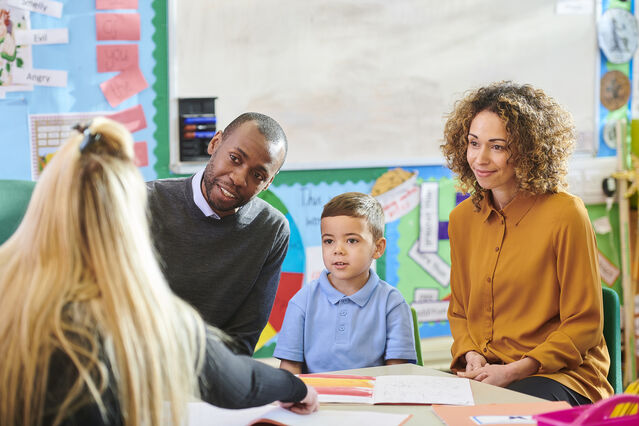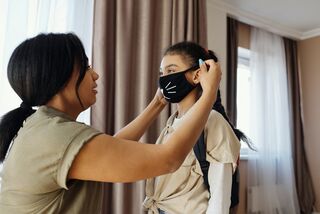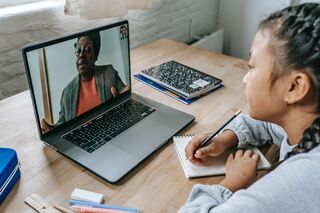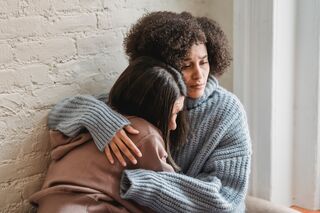Education
Post-Pandemic School Culture and How to Navigate It
Part 1: COVID’s effects on key players; educators, parents, and students.
Posted March 17, 2022 Reviewed by Vanessa Lancaster
Key points
- School administrators try to satisfy parents, teachers, and students, whose goals frequently compete.
- Teachers adapted curricula to less face-time and unpredictable delivery modes and became counselors, supporting student emotional well-being.
- Parents are stressed, helping their kids meet college entrance requirements and cope with losses associated with COVID.

I hope to help you, as a parent coping with the impact of COVID on your children’s academic life, better understand the obligations of your children’s school to you, other parents, and teachers. My goal is to give you constructive tools for getting what you want for your children through your interactions with their school administrators.
There are three entities most affected by COVID’s impact on education: you, the parents; your children’s teachers; and your kids. School administrators have a complicated job to satisfy and support each of these constituencies. Everyone is better served when they understand each other’s experiences, goals, and desires.
Overburdened Parents

Parents know that education opens doors of opportunity, and they understandably want to maximize their children’s academic options and experiences.
Because the college admissions process has become increasingly competitive, hiring tutors to help students catch up or get ahead is now the norm. Activities such as sports or playing an instrument—which previously served as outlets of creativity and recreation—have become domains for intense competition.
Trying to provide all the activities and supports they believe will ensure their children’s success can leave parents feeling stressed and overwhelmed—and, sometimes, less able to provide the emotional support their kids need. COVID added a whole other level of stress to the mix.
Dealing with everything I just mentioned to ensure your children’s success was hard enough. Now, most school children in the U.S. are trying to catch up on content and skills they couldn’t learn or practice in the first year of the pandemic, and many parents are worried that their kids will never catch up.
Add job insecurity, the need to supervise at-home learning, and the real-life threats of illness and death, and it’s no wonder so many parents seem frantic. One school administrator summed up the state of affairs thus:
So many kids are struggling after a year or more of not learning how to socialize or self-regulate. The same goes for parents. Consider the effects on adults of two-plus years of anger, separation, and isolation, all while having responsibility for their kids at home.
Step Into the Teachers’ Shoes

To be sure, schools are charged with educating children developing curricula that will foster students’ intellectual growth.
But schools also play a significant role in the socialization of children, teaching them how to take turns, communicate their feelings, demonstrate empathy towards others, compromise, see situations from multiple perspectives, and deal with disappointments that can result from misunderstandings between themselves and their peers.
Schools also teach children studentship skills like how to persist, organize themselves, and monitor their performance. As students get older, schools encourage them to become more autonomous and self-motivated and to sustain their attention longer for academic tasks.
Even before COVID, schools saw a growing trend of parents involving themselves more in their children’s education, increasing their specific demands on schools. Teachers, who are the primary implementers of education and the frontline deliverers of curriculum, were frequently asked—by administrators and parents alike—to modify what and how they were teaching to serve their students and parents better.
But for more than two years now, in addition to their usual goals, tasks, and challenges, teachers have also had to navigate the unpredictable world of COVID and its impact on how content was delivered and acquired. Because of the increased stress on students and parents, teachers have also been expected to serve as counselors for their students.
All this weight on teachers, with the added day-to-day anxiety in-person teachers may have about potentially contracting COVID from one of their students, has made many teachers feel burned out and frustrated.
Add to this that not all parents have the same ideas about how schools should be dealing with students in the face of all the challenges COVID has presented. Conflicting parental demands are common in schools, and COVID has intensified this, even sometimes within individual parents.
Some parents want to see their children’s teachers adopt a softer, more empathetic touch, while others expect teachers to provide the same rigor and push for the progress they could count on before the pandemic. Even when school administrators work with feedback from parents and teachers to plan a way forward, not everyone will be satisfied with their plans.

How Are the Kids?
At the pandemic's start, teachers’ primary goal was protecting the students’ emotional wellbeing. This was partly accomplished, just by maintaining social contact with their students, even if virtually. They tried to be more supportive than usual, and academic rigor became secondary to emotional survival.
Though this shift was understandable and advisable at the time, it resulted in students getting less practice with teacher criticism and fewer opportunities to develop classroom studentship skills.
Every parent knows that COVID interrupted the delivery of content to their children, significantly affecting their schooling since the spring of 2020. There were and continue to be schools whose primary curriculum delivery is virtual.
Most families have witnessed that the virtual “classroom” can be less than ideal for acquiring knowledge and developing socialization and resiliency skills. Virtual classes have often been shorter than live classes, and content was sometimes removed from the curriculum to streamline it accordingly.
Learning from home, students could wear what they pleased, take screen breaks whenever they wanted, mute themselves if they chose, or eat a snack during a lesson. There were few, if any, class rules about behavior, and they had no peers in the room with them to cause conflicts. If they wanted to give up on a task, they could. Teacher feedback was delivered more gently and less publicly, making it easier for students to receive.
When schools started reopening, students’ “new normal” changed again, and the demands and expectations that teachers had before COVID were reinstated. Many teachers whose students had been learning virtually for eight months or more were caught off guard to discover how many of their students were not yet at the levels they expected.
Teachers expected rising fourth-grade students to have mastered certain concepts and to have all the studentship and social skills they were accustomed to in fourth graders. But with an abridged curriculum and few opportunities to practice these skills, many children seemed “younger” than usual to their teachers. They started the new school year less prepared to learn the content their teachers were expecting to deliver.
Also, once kids returned to school, direct correction from teachers felt unfamiliar and more punitive than it might have if they had received that kind of feedback all along.

Students’ heightened sensitivity to verbal corrections of their behavior or critiques of their academic performance has stimulated protective responses from their stressed and worried parents, which I will address in greater depth in my next post.
I will leave you with this reminder: all stakeholders in the educational arena have been negatively affected by COVID, making it important that parents, as their children’s guides, stay mindful of its effects on everyone involved and tread carefully when advocating for their children.




